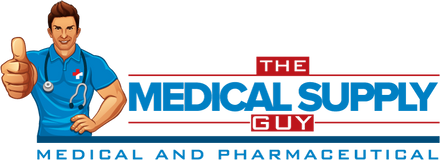Whether you're setting up a new clinic or updating your existing inventory, having the right medical supplies is crucial for efficient operation and exceptional patient care. Here’s a list of the top 10 essential medical supplies that every clinic should have.
1. Stethoscopes
A fundamental tool in any medical practice, the stethoscope is indispensable for assessing respiratory and cardiovascular health. Opt for models that offer superior acoustic sensitivity and comfortable fit to ensure precise diagnostics.
2. Blood Pressure Monitors
Accurate blood pressure measurements are critical for diagnosing and monitoring hypertension and other cardiac conditions. Clinics should have both automatic and manual sphygmomanometers, equipped with cuffs of different sizes to accommodate all patients.
3. Examination Gloves
Hygiene is paramount in a clinical setting. Disposable examination gloves prevent cross-contamination between patients and protect healthcare workers from pathogens. Stock up on latex, nitrile, or vinyl options to cater to different allergy needs.
4. Thermometers
With options ranging from traditional mercury thermometers to modern infrared and digital ones, having a reliable method to measure body temperature is a necessity for any medical clinic.
5. Autoclaves
Sterilization of medical instruments is non-negotiable. Autoclaves use steam under high pressure to ensure that all instruments are free from bacteria and other pathogens, crucial for preventing infections.
6. Diagnostic Sets
A good diagnostic set typically includes an ophthalmoscope and otoscope, essential for examining the eyes and ears. These tools help in early detection of common conditions like ear infections and glaucoma.
7. Electrocardiogram (ECG) Machine
For clinics that manage a lot of elderly patients or those with heart conditions, an ECG machine is essential for monitoring heart health and detecting cardiac abnormalities.
8. First Aid Kits
A well-stocked first aid kit is essential for handling emergencies in any clinical setting. Include bandages, gauze, antiseptics, pain relievers, and emergency medications.
9. Surgical Instruments
Even if a clinic does not perform major surgeries, having basic surgical instruments such as scalpels, scissors, forceps, and suturing materials is necessary for minor surgical procedures and wound care.
10. Medical Furniture
Every clinic needs medical furniture that enhances patient comfort and supports the efficient delivery of medical services. Adjustable examination tables, chairs with good back support, and ample lighting are must-haves.
Conclusion
Equipping your clinic with these essential medical supplies ensures that you are prepared to provide comprehensive care and respond effectively to the needs of your patients. While the specific requirements may vary based on the clinic’s specialization, these items form the core of what every healthcare facility should have on hand. Investing in high-quality, durable medical supplies not only enhances the functionality of your clinic but also contributes to better patient outcomes and satisfaction.

